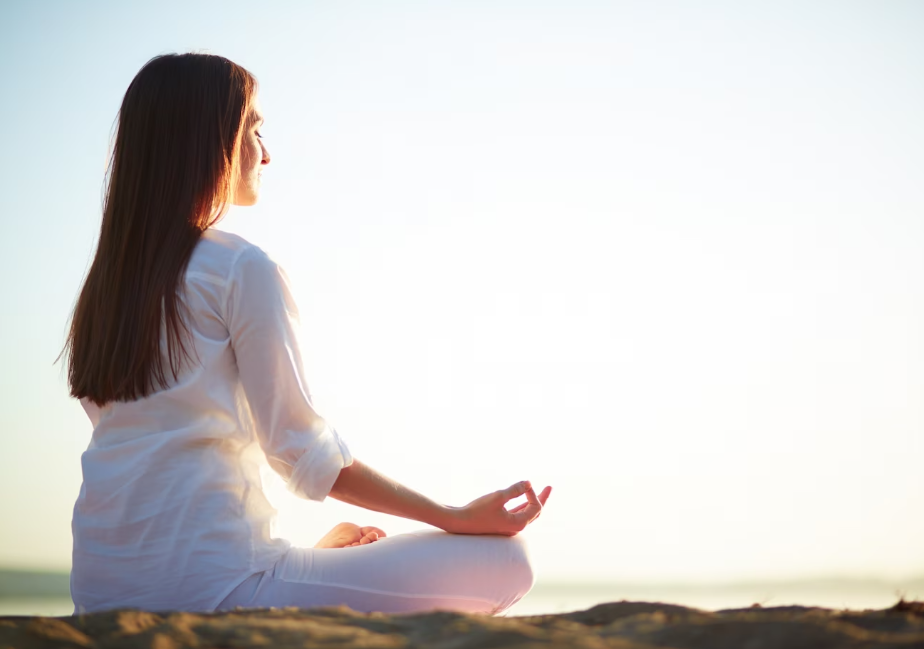How can self-help techniques be used to improve self-care?
Learn how the practice of taking care of oneself including physical, emotional, and mental well-being, is essential in life.

Selfpause Affirmation App
Download the app to get 1,000’s of affirmation meditations and everything you need to write, record and listen to your own.
Self-care refers to the practice of taking care of oneself in a holistic way, including physical, emotional, and mental wellbeing. It involves prioritizing one’s own needs and engaging in activities that promote health and happiness. Self-care is essential for maintaining good mental and physical health, reducing stress, and preventing burnout.
In today’s fast-paced world, self-care is often neglected due to the demands of work, family, and other responsibilities. However, self-care is crucial for overall wellbeing, and there are many self-help techniques that individuals can use to improve their self-care.

- Practice mindfulness
Mindfulness is the practice of being present in the moment and focusing on one’s thoughts, feelings, and surroundings without judgment. Mindfulness can help individuals become more aware of their own needs and feelings, and develop a greater sense of self-compassion and self-care.
To practice mindfulness, individuals can start by setting aside a few minutes each day to sit quietly and focus on their breath. They can also incorporate mindfulness into daily activities, such as eating, walking, or brushing their teeth, by focusing on the sensations and experiences in the present moment.
- Set boundaries
Setting healthy boundaries is an important part of self-care. Boundaries help individuals protect their time, energy, and resources, and prevent them from overextending themselves or being taken advantage of.
To set boundaries, individuals can start by identifying their own needs and priorities, and communicating them clearly to others. They can also say no to requests that do not align with their own needs or values, and delegate tasks or responsibilities when appropriate.
- Practice gratitude
Practicing gratitude involves focusing on the positive aspects of one’s life and expressing appreciation for them. Gratitude can help individuals develop a more positive outlook on life, reduce stress, and improve overall wellbeing.
To practice gratitude, individuals can start by identifying three things they are grateful for each day. They can also express their gratitude to others, either through verbal or written communication, or by performing acts of kindness.

- Engage in self-reflection
Self-reflection involves examining one’s own thoughts, feelings, and behaviors in order to gain insight and understanding. Self-reflection can help individuals identify areas for improvement and develop a greater sense of self-awareness and self-care.
To engage in self-reflection, individuals can start by setting aside time each day to reflect on their experiences and emotions. They can also journal about their thoughts and feelings, or seek feedback from trusted friends, family members, or professionals.
- Prioritize sleep
Sleep is essential for physical and mental health, and getting enough sleep is an important part of self-care. Lack of sleep can lead to fatigue, irritability, and poor concentration, which can impact overall wellbeing.
To prioritize sleep, individuals can establish a regular sleep schedule and create a relaxing bedtime routine. They can also avoid caffeine and alcohol before bed, and limit screen time in the evening.
- Practice self-compassion
Self-compassion involves treating oneself with kindness and understanding, especially during difficult times. Self-compassion can help individuals develop a more positive relationship with themselves and improve overall self-care.
To practice self-compassion, individuals can start by speaking to themselves in a kind and supportive manner, similar to how they would speak to a friend. They can also engage in self-soothing activities, such as taking a warm bath or practicing deep breathing exercises.

- Engage in physical activity
Physical activity is important for overall health and wellbeing, and can also be a form of self-care. Exercise can help reduce stress, improve mood, and boost energy levels.
To engage in physical activity, individuals can start by incorporating movement into their daily routine, such as taking the stairs instead of the elevator or going for a walk during lunch break. They can also find an activity they enjoy, such as yoga, dancing, or hiking, and make time for it regularly.
- Eat a balanced diet
Eating a balanced diet is essential for physical health and can also be a form of self-care. A diet rich in fruits, vegetables, whole grains, and lean protein can provide the nutrients the body needs to function properly and feel good.
To eat a balanced diet, individuals can start by planning their meals and snacks in advance, and incorporating a variety of healthy foods into their diet. They can also avoid restrictive diets or extreme calorie counting, and instead focus on creating a healthy and sustainable relationship with food.
- Connect with others
Connection with others is an important part of overall wellbeing and can also be a form of self-care. Social support can provide comfort, validation, and a sense of belonging, which can help reduce stress and improve mood.
To connect with others, individuals can start by reaching out to friends or family members they haven’t spoken to in a while, or joining a social group or club that aligns with their interests. They can also consider seeking professional support, such as therapy or counseling, to address any underlying emotional or mental health concerns.

- Take breaks
Taking breaks is essential for preventing burnout and maintaining good mental and physical health. Breaks can help individuals recharge, reduce stress, and improve overall productivity.
To take breaks, individuals can start by scheduling regular breaks throughout the day, such as a short walk or stretching break every hour or so. They can also schedule regular time off, such as a vacation or weekend getaway, to disconnect from work and other responsibilities and engage in self-care activities.
In conclusion, self-care is an essential part of maintaining good mental and physical health, reducing stress, and preventing burnout. There are many self-help techniques that individuals can use to improve their self-care, such as practicing mindfulness, setting boundaries, practicing gratitude, engaging in self-reflection, prioritizing sleep, practicing self-compassion, engaging in physical activity, eating a balanced diet, connecting with others, and taking breaks. By prioritizing self-care and incorporating these techniques into their daily routine, individuals can improve their overall wellbeing and lead a more fulfilling and satisfying life.
